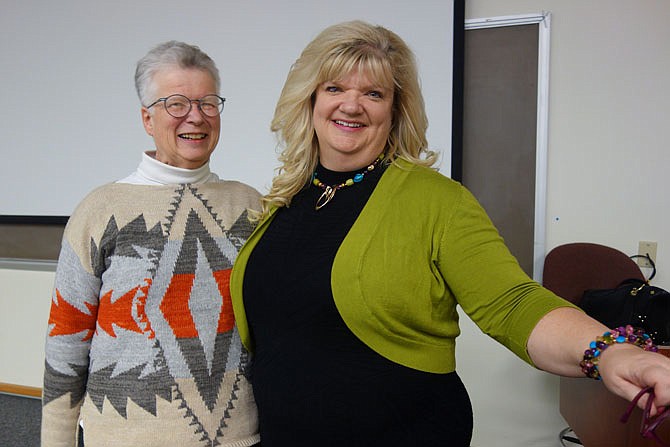The young women who test-read William Woods University professor Stephanie Wells' trilogy told her they couldn't believe life used to be like that for women, Wells said.
And the older women?
"They say, 'Yep, I remember it,'" Wells reported.
Drawing on the experiences of a woman the author has known for decades, Wells recently finished writing a trilogy called "Girls Don't Count." Set in rural Missouri, beginning with the narrator's youth in the '80s, the trilogy jumps back and forth across time in an episodic fashion.
Wells' student assistant Rachel Skelton, who is helping Wells search for a publisher, said she's found it difficult to easily summarize the story. But she thinks it's important to get it out into the world.
"It fills a need in the feminist movement," Skelton said. "Feminism tends to forget women in rural areas. They don't think to work with him because they think (those attitudes and situations) are already gone."
She was talking about attitudes like the ones that made the narrator's friend Tracey worry about learning to read, because her husband Bobby had "never been much on reading."
Wells read several passages from the book aloud at a recent William Woods lecture. Another story told about how the narrator's aunt was raped by a stranger. Aunt Joann later faked losing her virginity to her husband by using dove's blood, at the narrator's mother's suggestion.
"I think the themes of cooperation between women are important," Wells said.
As the story above suggests, the anecdotes contained in Wells' book are often graphic and uncomfortable, though she said she tried to lighten the mood with funny, snappy dialogue. She said her test readers sometimes put down the books because they were so mad and returned to finish them later.
"I didn't start considering the audience until I started talking about the books to people," Wells said. "I wrote them from an emotional place."
The three books poured out of her over the course of a year and a half. She wrote from nine in the evening, when her daughter went to bed, until one in the morning, slept a few hours, and then woke up to write until eight.
"Writing the books led to a lot of life changes, including in the way I think about raising my daughter," Wells said.
That's partially because the narrator's life was, in many ways, shaped by the expectations and restrictions her mother put on her.
Wells already has two ideas for her next book. One is already underway and is about "female exploration," she said. The other would delve into the life of the character's mother.
"She was a major figure in the books," Wells said. "So much of what happens to the narrator comes back to her."
Correction: Stephanie Wells is the correct name of the speaker. The original version of this article had her last name incorrect but the error has since been fixed in the text above.

